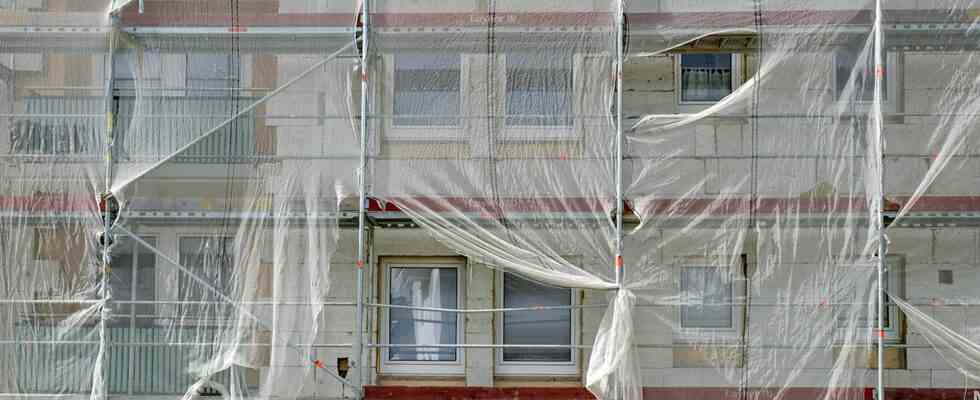Status: 07/26/2022 8:38 p.m
In the future, the federal government is planning 13 to 14 billion euros per year for building subsidies – especially for renovations. The aim is, for example, that many “energy guzzlers” such as old windows and gas heaters are replaced.
With a reform of the multi-billion government building subsidies, the federal government intends to focus on renovation in the future. The aim of the new funding conditions is for as many people as possible to benefit from the program so that they can replace “energy guzzlers” such as old windows, doors and gas heaters and renovate houses and apartments, as the Ministry of Economic Affairs announced.
At the same time, subsidy rates for the installation of heat pumps, for example, will be reduced. “In order to give as many citizens as possible access to funding in view of the tight budget, slightly reduced funding rates are necessary,” says the ministry.
The background is also the throttling of Russian gas supplies: “Using less energy is the cheapest and most efficient contribution to more independence and climate protection and helps to save on energy costs,” said Economics and Climate Protection Minister Robert Habeck according to the announcement.
13 to 14 billion euros per year
According to the ministry, annual funding of 13 to 14 billion euros is planned. The focus will be on renovations with twelve to 13 billion euros, a smaller part of one billion will be allocated to new construction. The money should come primarily from the climate and transformation fund, the economic plan of which the cabinet is to decide on Wednesday. For comparison: in 2021, the state funded renovations with around eight billion euros, in 2020 it was five billion. In the current year by July it is already 9.6 billion euros.
The subsidy rates will be reduced by five to ten percentage points. Examples: According to the ministry, you used to get a subsidy of up to 30,000 euros for the installation of a heat pump, after the reform up to 24,000 euros. In the past, you could get up to 15,000 euros for a window replacement, after the reform it was 12,000 euros.
“In the future, the individual will receive a little less funding than before, but many people can benefit from the funding programs,” explained Habeck. This is indicated in times of high energy costs. “The vast majority of people live in older houses. Renovating now, replacing windows, throwing out the gas heating – that helps to save costs and goes hand in hand with climate protection.” The effect on energy savings and climate protection is around 4.5 times higher in energy-efficient building refurbishment than in new construction.
The changes will come into effect on a staggered basis starting Thursday
The changes regarding the renovations are to be published in the Federal Gazette on Wednesday and come into force in a graduated order on Thursday. From July 28th, new funding conditions will apply to complete renovations and the ongoing new construction funding, and from August 15th new funding conditions will apply to individual renovation measures. The new construction subsidy is to be largely switched to low-interest loans – and in a further step to be fundamentally redesigned by the Ministry of Construction in close cooperation with the Ministry of Economic Affairs for the year 2023.
At the beginning of the year, due to a flood of applications, Habeck prematurely stopped grants from the KfW development bank for a highly sought-after new building development program shortly before the end of the application period. This was justified with the threat of additional costs in the billions. Successor programs with higher requirements are running.

